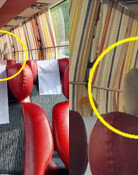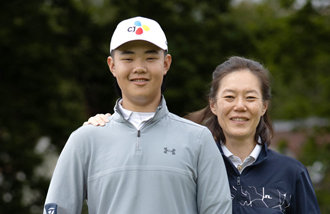Whos Albert Einstein?
Korean high school physics and chemistry textbooks are not up-to-date with modern science and some even have incorrect concepts, says Koreas science community.
Students who attend regular schools only learn old physics but those at science schools are educated with modern physics. This may cause confusion in the physics portion of the 2008 national college entrance exam.
The atomic model in current textbooks is from some 100 years ago when the quantum theory was not yet established, says Professor Kim. As the model is different from todays theory in many ways, those who graduated from science high schools or studied modern quantum physics are likely to have gained knowledge different from what textbooks teach today.
Physics Professor Jeong Jin-soo of Chungbuk National University analyzed two 10th-grade physics textbooks and found 49 errors. He then published his findings last year in the journal New Physics sending shockwaves across the country.
Chemistry textbooks are not much better.
Professor Baek Seong-hye of Korea National University of Education says, Chemistry books are stuck in the 18th- and 19th-centuries. Under the modern concept of elements, they are defined by the number of protons, but students still learn the old concept that elements are simple substances that cannot be broken down.
Scientific terms are outdated, confusing students.
Chemistry Professor Lee Sang-guk of Busan National University says, Only 10 years ago, terms in chemistry were all either pronounced in German or Japanese. Given that some 90% of academic papers are published in English today, the Korean Chemistry Society advises the use of English pronunciation.
Accordingly, natrium has been changed to sodium and the English pronunciation for halogen is used. However, natrium and the German pronunciation for halogen are still used in high schools.
If students are taught using high school textbook terminology, they can be confused when they read English-language chemistry books at university or when they speak with foreign scholars at international seminars.
dream@donga.com sohyung@donga.com







